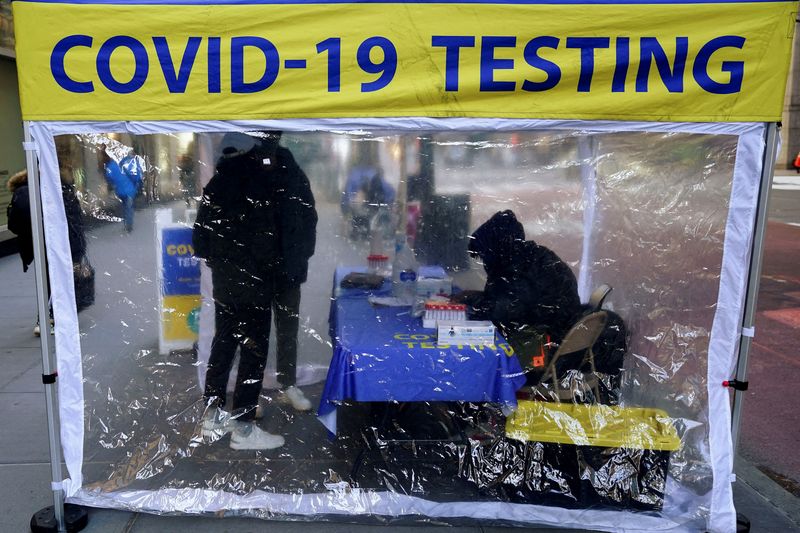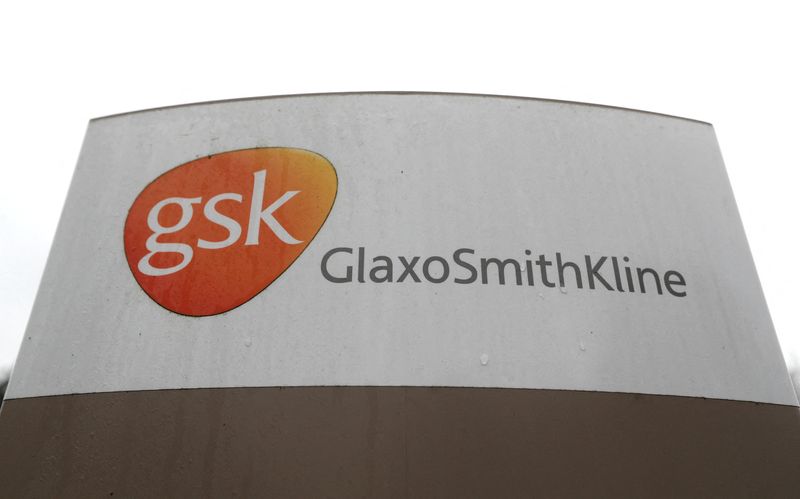By Pushkala Aripaka
(Reuters) - The United States has agreed to buy 600,000 more doses of GSK and Vir Biotechnology (NASDAQ:VIR)'s COVID-19 antibody therapy for an undisclosed sum, as the country bolsters its arsenal of treatments against the Omicron coronavirus variant.
The additional doses of sotrovimab would be delivered in the first quarter of 2022, the drugmakers said on Tuesday, taking the tally of doses secured by nations worldwide to roughly 1.7 million. Canada and the European Union have signed deals too.
The U.S. government in November had signed contracts worth about $1 billion for an unknown number of doses of the treatment, after saying it would control the distribution of sotrovimab in the country.
The drug belongs to a class of medicines called monoclonal antibodies which are lab-generated compounds that mimic the body's natural defences. Tests have indicated sotrovimab works against the fast-spreading Omicron variant.
The United States reported 1.35 million new coronavirus infections on Monday, according to a Reuters tally, the highest daily total for any country.
"We understand the role we can play in supporting the ongoing pandemic response," said Maya Martinez-Davis, GSK head for U.S. pharmaceuticals. "Our teams are working with urgency to explore options to expand our supply capacity so we can support more patients in 2022."
SCRAMBLING
Scientists and governments are scrambling to bolster defences against Omicron with testing, shots, therapies, as the variant threatens to become dominant globally by evading protection offered by current vaccines and drugs.
Last week, the Biden administration doubled its order for Pfizer (NYSE:PFE)'s oral COVID-19 antiviral treatment, providing the government a total of 20 million courses.
While Omicron is potentially less severe than other variants, the sheer number of infections has raised concerns hospital systems could get strained by rising patient numbers and staff shortages.

GSK and Vir expect to produce about 2 million doses of sotrovimab globally in the first half of 2022. While the drug is given via an infusion, a trial has shown it works also as a potentially more convenient shot in the arm.
The therapy was authorised for emergency use in the United States in May 2021 to prevent mild or moderate cases of COVID-19 from worsening.
